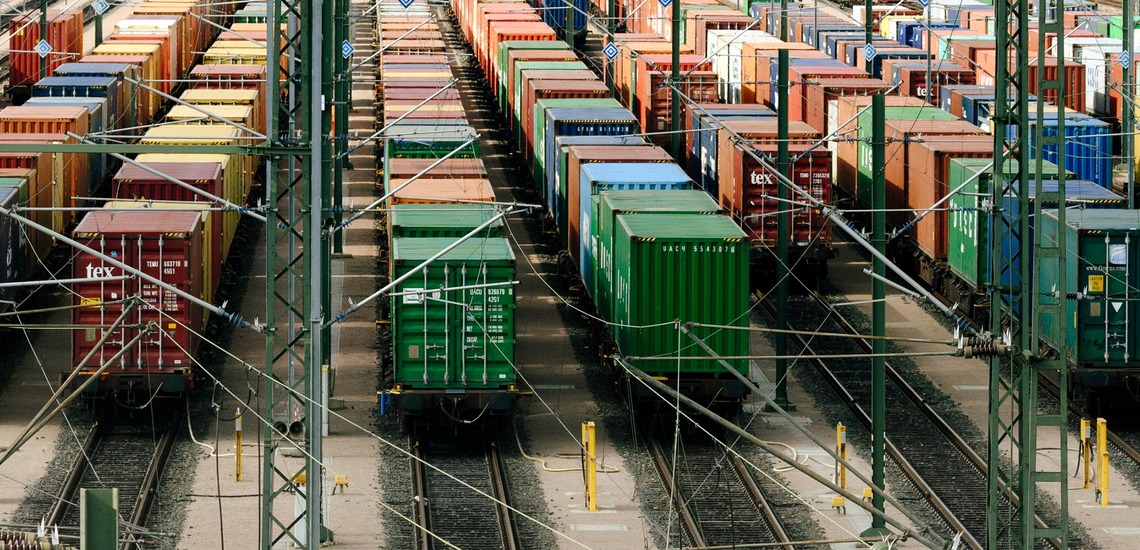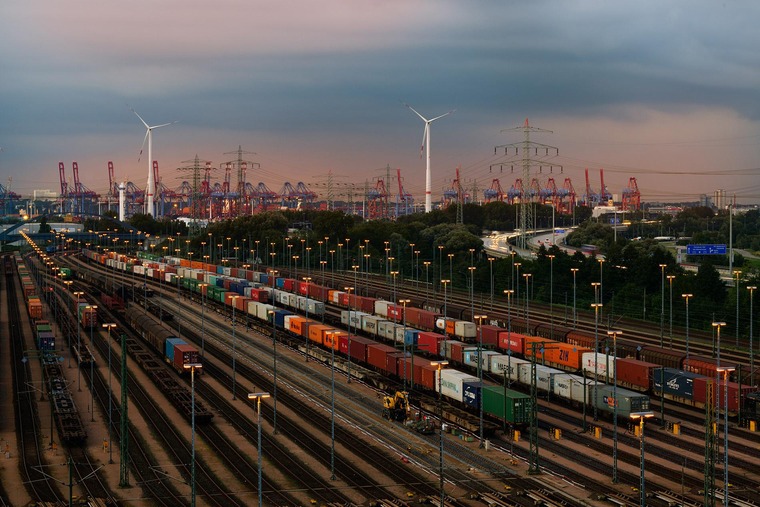A snapshot
European intermodal transport grew by 1.4% last year but there is still a lot of potential.
Our main goal is to connect the ÖBB terminals in Austria and abroad through our customer-oriented TransNET and to enable the change from road to the environmentally friendly railways through short transit times and fast turnaround times. In this way, even more freight is transferred to rail. Which is important, because rail freight transport protects the environment and is the only way to achieve both climate targets and economic growth. Europe-wide 30% more freight transport by rail by 2030 - that is what we have committed ourselves to.
What we are working on in detail
We are constantly expanding our network. In 2020, new TransFER connections were again launched, such as the TransFER Verona-Lübeck with 3 weekly round trips, thus relieving road transit through Tyrol in unaccompanied combined transport like the ROLA does. But also on the Danube axis there is a new connection between Wels, Vienna and Budapest.
We are the link between Western and Eastern Europe, with the ÖBB terminals as a hub. This has enabled us to steadily increase the frequency of trains to Turkey and China in recent years and to distribute the containers transported by these trains throughout Europe through our dense network. We expect an increase in China traffic in particular since the loosening of the Covid sanctions. Currently three new China connections have just been launched. We have been active on all routes of the Silk Road since 2017. By pushing the China traffic, RCG is making a significant contribution to the further development of the Austrian export economy - and growth in China is generally decisive for the growth of freight traffic in Europe and Asia.
What supports our expansion - the ports
The importance of the ports as logistics hubs is growing rapidly. We are now one of the leading rail logistics companies in the ports of Trieste, Koper, Hamburg, Bremerhaven, Piraeus, Rotterdam and Antwerp, and we are also working consistently to expand our position in Rijeka, Gdansk, Venice and Constanta. RCG's success is based on proactive action in close cooperation with shipping companies, port authorities, terminals and rail infrastructure operators.
Containers are the ideal packaging for your goods - #ShiftToRailNow



